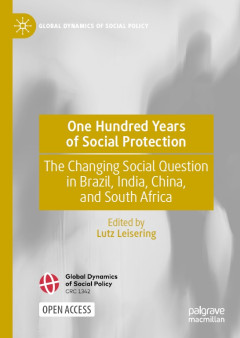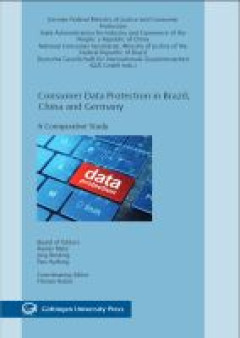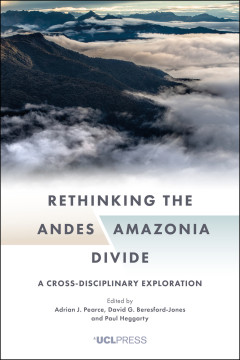Ditapis dengan

Politics of quality in education:a comparative study of Brazil, China, and Ru…
- Edisi
- -
- ISBN/ISSN
- 9780203712306
- Deskripsi Fisik
- xx, 208 p.: ill.
- Judul Seri
- -
- No. Panggil
- LEN 379.158 POL
- Edisi
- -
- ISBN/ISSN
- 9780203712306
- Deskripsi Fisik
- xx, 208 p.: ill.
- Judul Seri
- -
- No. Panggil
- LEN 379.158 POL

Beyond waters:archaeology and environmental history of the Amazonian Inland
This book is one of the outcomes of the project Cultivated Wilderness: Socio-economic development and environmental change in pre-Columbian Amazonia (http://www.cultivated-wilderness.org/). The project has particularly focused on the previously relatively unknown prehistory of the Amazonian hinterland. Our work has revealed that pre-Columbian settlements in the Santarém region in the State of …
- Edisi
- -
- ISBN/ISSN
- 9789185245666
- Deskripsi Fisik
- 129 p.; 22 cm.
- Judul Seri
- -
- No. Panggil
- 981.1 BEY b

Emerging market economies and financial globalization:argentina, brazil, chin…
In the past, foreign shocks arrived to national economies mainly through trade channels, and transmissions of such shocks took time to come into effect. However, after capital globalization, shocks spread to markets almost immediately. Despite the increasing macroeconomic dangers that the situation generated at emerging markets in the South, nobody at the North was ready to acknowledge the pro-…
- Edisi
- -
- ISBN/ISSN
- 9781783086740
- Deskripsi Fisik
- pages cm.
- Judul Seri
- -
- No. Panggil
- 330 STA e

One hundred years of social protection :the changing social question in Brazi…
While the rise of social protection in the global North has been widely researched, we know little about the history of social protection in the global South. This volume investigates the experiences of four middle-income countries - Brazil, India, China and South Africa - from 1920 to 2020, analysing if, when, and how these countries articulated a concern about social issues and social cohesio…
- Edisi
- -
- ISBN/ISSN
- 9783030549596
- Deskripsi Fisik
- xxiv, 437p. : ill.
- Judul Seri
- -
- No. Panggil
- 361.61 ONE o

Consumer data protection in Brazil, China and Germany
The rapid development of new information and communication technologies has changed people’s everyday life and consumption patterns significantly. The worldwide spread of those technologies provides many innovations for consumers, but it can also bear risks, such as the indiscriminate collection, storage and cross-border flow of personal data, illegal spying on Internet activities, disseminat…
- Edisi
- -
- ISBN/ISSN
- 9783863952365
- Deskripsi Fisik
- 222 p. ; 24 cm
- Judul Seri
- -
- No. Panggil
- 343.071 CON c

Rethinking the Andes-Amazonia divide :a cross disciplinary exploration
Nowhere on Earth is there an ecological transformation so swift and so extreme as between the snow-line of the high Andes and the tropical rainforest of Amazonia. The different disciplines that research the human past in South America have long tended to treat these two great subzones of the continent as self-contained enough to be taken independently of each other. Objections have repeatedly b…
- Edisi
- -
- ISBN/ISSN
- 9781787357358
- Deskripsi Fisik
- xxviii, 386 p. ill;
- Judul Seri
- -
- No. Panggil
- 980 RET A

Ageing with smartphones in urban Brazil :a work in progress
With people living longer all over the world, ageing has been framed as a socio-economic problem. In Brazil, older people are expected to remain healthy and autonomous while actively participating in society. Based on ethnographic research in São Paulo, Ageing with Smartphones in Urban Brazil shows how older people in a middle-class neighbourhood conciliate these expectations with the freedom …
- Edisi
- -
- ISBN/ISSN
- 9781787359963
- Deskripsi Fisik
- x, 293 p. ill;
- Judul Seri
- -
- No. Panggil
- 303.4833 AGE M

Ageing with smartphones in urban Brazil :a work in progress
With people living longer all over the world, ageing has been framed as a socio-economic problem. In Brazil, older people are expected to remain healthy and autonomous while actively participating in society. Based on ethnographic research in São Paulo, Ageing with Smartphones in Urban Brazil shows how older people in a middle-class neighbourhood conciliate these expectations with the freedom …
- Edisi
- -
- ISBN/ISSN
- 9781787359963
- Deskripsi Fisik
- x, 293 p. ill;
- Judul Seri
- -
- No. Panggil
- 303.4833 AGE M
 Karya Umum
Karya Umum  Filsafat
Filsafat  Agama
Agama  Ilmu-ilmu Sosial
Ilmu-ilmu Sosial  Bahasa
Bahasa  Ilmu-ilmu Murni
Ilmu-ilmu Murni  Ilmu-ilmu Terapan
Ilmu-ilmu Terapan  Kesenian, Hiburan, dan Olahraga
Kesenian, Hiburan, dan Olahraga  Kesusastraan
Kesusastraan  Geografi dan Sejarah
Geografi dan Sejarah